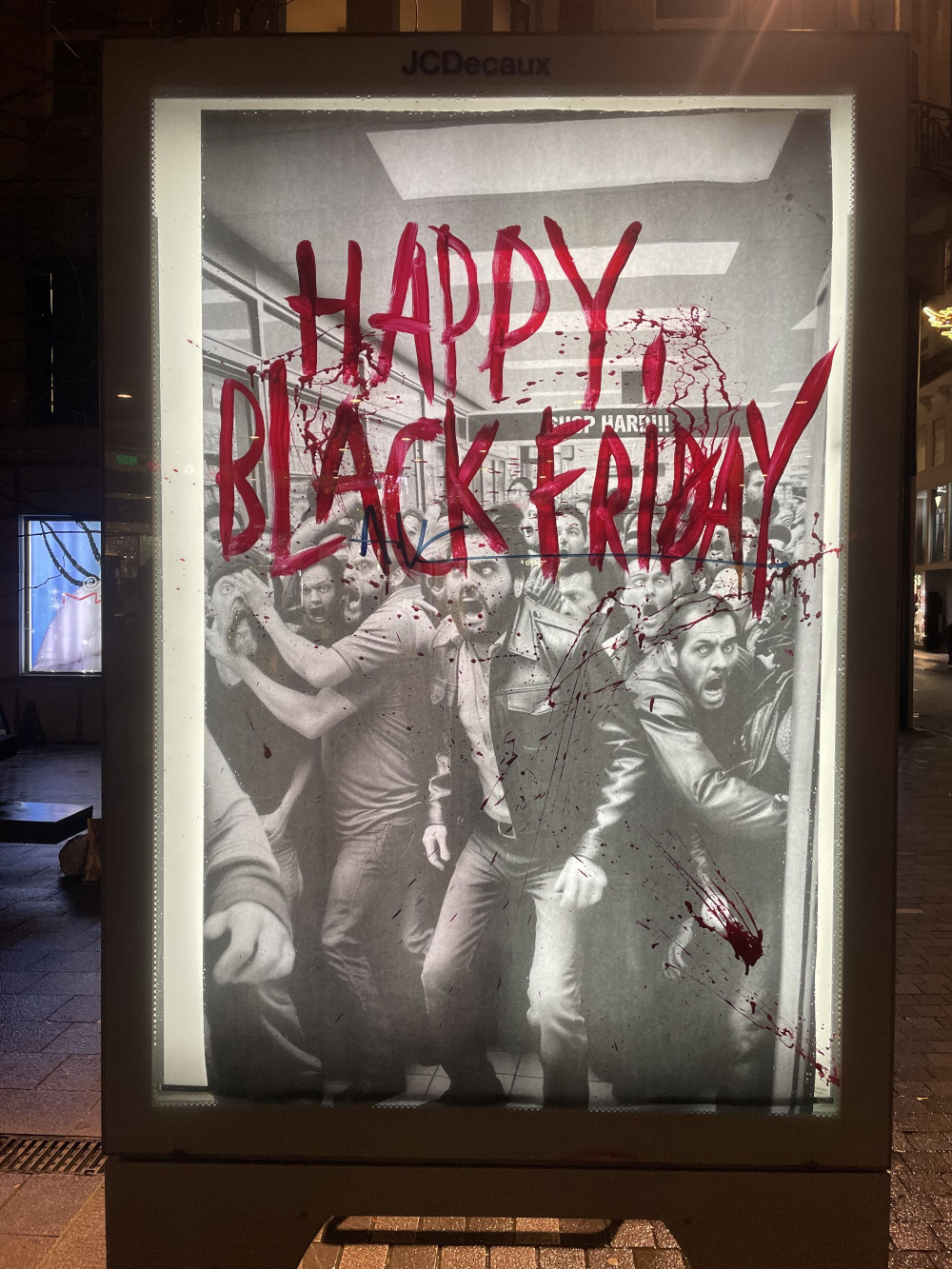By John Sheerman
As Black Friday approaches, the frenzy builds, email reminders appear in our inbox counting down to the most lucrative period in the commercial calendar, from airlines to white goods, we are promised bargains galore, for a limited time only (T’s & C’s apply). From billboards to TV commercials, the advertising industry has one single unadulterated purpose, to sell us a lifestyle, one product at a time.
Let’s be honest, who amongst us doesn’t enjoy a new, shiny thing, a phone, a laptop, a flat screen TV. Was there anything wrong with your old TV? No, but this one is bigger, thinner, faster, more pixels, with a curved screen, voice control and an in-built Nespresso machine. And at that price you’d be mad not to buy it! You switch on your new TV, and as you sip your piping hot coffee, an advert pops up on your curvy screen to tell you there’s a new TV and your old new TV is absolutely rubbish. The new one fires cheese toasties directly into your mouth at 40 miles per hour. Does yours do that? Pah!

Above: Artwork by Grand Chambellan, Brussels, 2023
Put aside the fac that Which has shown that 86% of products were cheaper or the same price in the six months before Black Friday, the real issue is that we are being encouraged, coaxed, implored to buy more stuff, every day of the year. Black Friday is a straw man for our entire attitude to consumption. The very existence of the advertising industry is manifestly built on convincing the world that our lives will be better, more enjoyable, more fulfilled if we own the ‘new thing’ whatever that thing happens to be. Today, a wifi toaster, tomorrow, a self-driving wheelie bin. But the choice we are offered is always framed as a binary one, between the flat screen TV with surround sound and the flat screen without, between the iPhone or the android. The choice to buy nothing at all is tantamount to heresy.
If you’re having a bad day, feeling a little anxious, why not indulge in a little ‘retail therapy’ to lift your spirits, scroll through the latest deals and feel that dopamine hit as you press “add to basket”. Your purchase will temporarily dull the reasons you were originally anxious, perhaps you don’t earn enough money, you haven’t received a pay rise in a decade, you need to take on extra hours to get through the month, you have less time to see friends and family, but in that moment the purchase helps, the outfit, phone, shoes, will lift your spirits. The guy in the advert you saw wearing them looked absolutely ecstatic. And afterall, your purchase is helping the economy to grow. Growth is good. Growth is vital.
Except, growth is not always good. Growth can indeed be unhealthy. Exponential growth, the unchallenged mantra of politicians of almost every stripe is not only difficult, it is unsustainable unless we are willing to believe that there are unlimited resources available on the planet with which to make the things we consume. When you reach adulthood you aim to reach an optimal height and weight and then maintain those levels, or risk morbid levels of obesity. If your doctor sat you down and earnestly explained that you were weeks, perhaps days away from suffering a massive heart attack, you’d be at least a little surprised if they recommended 5 jam doughnuts a day and to take up smoking. “Is that going to prevent my heart attack doctor?” They shrug “Nah, but it might take the edge off while you wait”.
Imagine for one single day, the ads just stopped. Silence. That feeling when a car alarm has been blaring for hours, you’ve tuned it out enough to concentrate, only aware of it again as it is silenced. Imagine the subtle but tangible release of pressure, the pause in the clamour for your attention, the omni presence of advertising.
Black Friday, Christmas, Boxing day sales, January sales, February… flogathon, Merchandise March, and on it goes. As satisfying as a pseudo bargain might appear, as moreish as they might feel, we can’t buy our way to happiness and sadly, when it comes to the future of the planet, there is no “buy one, get one free”.

